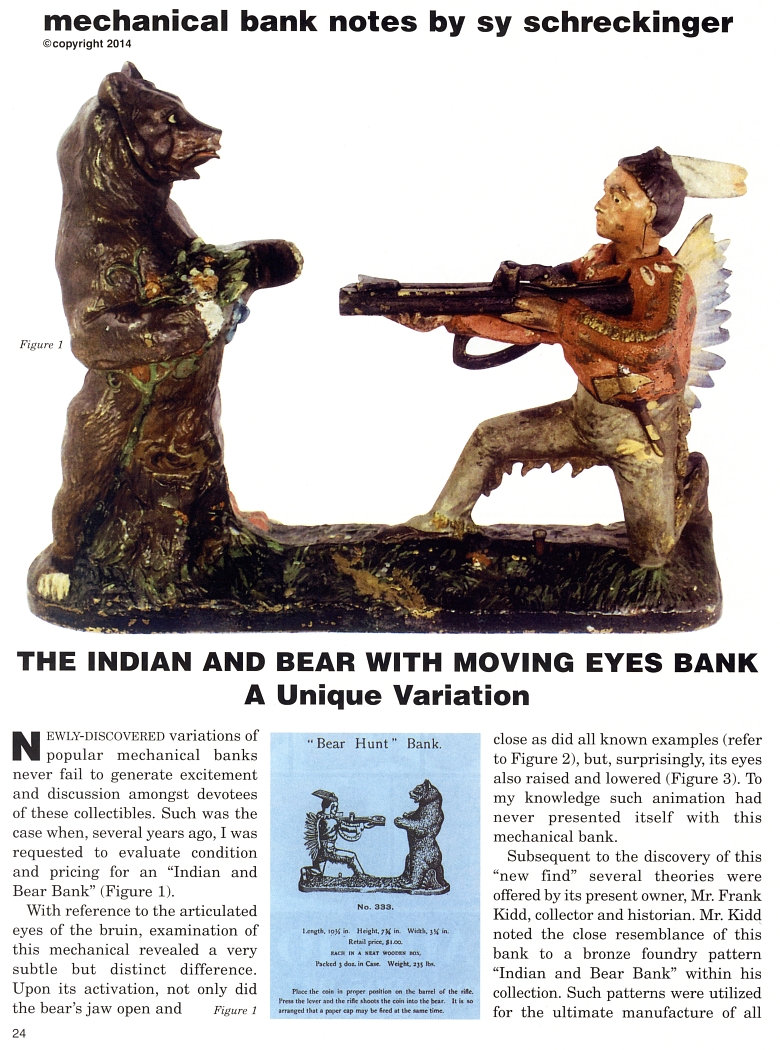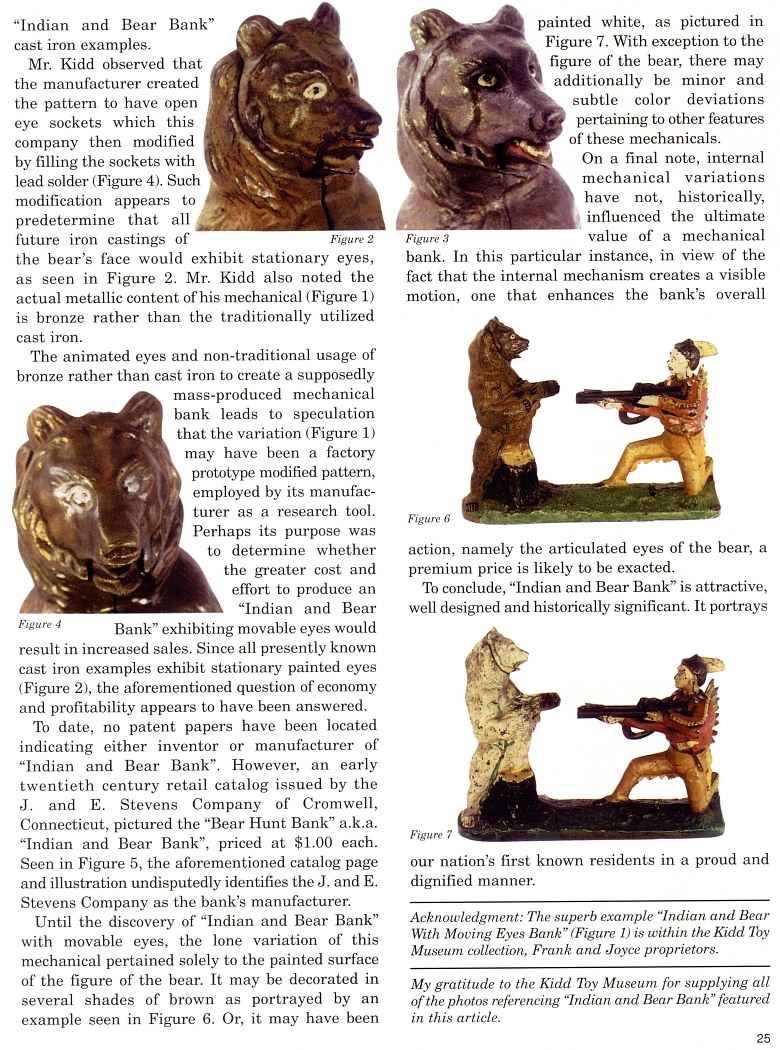|
The Indian and Bear
with Moving Eyes Bank
A Unique Variation
by Sy Schreckinger – ANTIQUE TOY WORLD Magazine – October, 2014
NEWLY-DISCOVERED variations of popular mechanical banks never fail to
generate excitement and discussion amongst devotees of these
collectables. Such was the case when, several years ago, I was requested
to evaluate condition and pricing for an "Indian and Bear Bank" (Figure
1).
With reference to the articulated eyes of the bruin, examination of this
mechanical revealed a very subtle but distinct difference. Upon its
activation, not only did the bear's jaw open and close as did all known
examples (refer to Figure 2), but, surprisingly, its eyes also raised
and lowered (Figure 3). To my knowledge such animation had never
presented itself with this mechanical bank.
Subsequent to the discovery of this "new find" several theories
were offered by its present owner, Mr. Frank Kidd, collector and
historian. Mr. Kidd noted the close resemblance of this bank to a bronze
foundry pattern "Indian and Bear Bank" within his collection. Such
patterns were utilized for the ultimate manufacture of all "Indian and
Bear Bank" cast iron examples.
Mr. Kidd observed that the manufacturer created the pattern to have
open eye sockets which this company then modified by filling the sockets
with lead solder (Figure 4). Such modification appears to predetermine
that all future iron castings of Figure 2 the bear's face would exhibit
stationary eyes, as seen in Figure 2. Mr. Kidd also noted the actual
metallic content of his mechanical (Figure 1) is bronze rather than the
traditionally utilized cast iron.
The animated eyes and non-traditional usage of bronze rather than
cast iron to create a supposedly mass-produced mechanical bank leads to
speculation that the variation (Figure 1) may have been a factory
prototype modified pattern, employed by its manufacturer as a research
tool. Perhaps its purpose was to determine whether the greater cost and
effort to produce an "Indian and Bear Bank" exhibiting movable eyes
would result in increased sales. Since all presently known cast iron
examples exhibit stationary painted eyes (Figure 2), the aforementioned
question of economy and profitability appears to have been answered.
To date, no patent papers have been located indicating either
inventor or manufacturer of "Indian and Bear Bank". However, an early
twentieth century retail catalog issued by the J. and E. Stevens Company
of Cromwell, Connecticut, pictured the "Bear Hunt Bank" a.k.a. "Indian
and Bear Bank", priced at $1.00 each. Seen in Figure 5, the
aforementioned catalog page and illustration undisputedly identifies the
J. and E. Stevens Company as the bank's manufacturer.
Until the discovery of "Indian and Bear Bank" with movable eyes,
the lone variation of this mechanical pertained solely to the painted
surface of the figure of the bear. It may be decorated in several shades
of brown as portrayed by an example seen in Figure 6. Or, it may have
been painted white, as pictured in Figure 7. With exception to the
figure of the bear, there may additionally be minor and subtle color
deviations pertaining to other features of these mechanicals.
On a final note, internal mechanical variations have not,
historically, influenced the ultimate Figure 2 value of a mechanical
bank. In this particular instance, in view of the fact that the internal
mechanism creates a visible motion, one that enhances the bank's
overall action, namely the articulated eyes of the bear, a premium price
is likely to be exacted.
To conclude, "Indian and Bear Bank" is attractive, well designed
and historically significant. It portrays our nation's first known
residents in a proud and dignified manner.
Acknowledgment: The superb example "Indian and Bear With Moving
Eyes Bank" (Figure 1) is within the Kidd Toy Museum collection, Frank and
Joyce proprietors.
My gratitude to the Kidd Toy Museum far supplying all of the photos
referencing "Indian and Bear Bank" featured in this article. |


